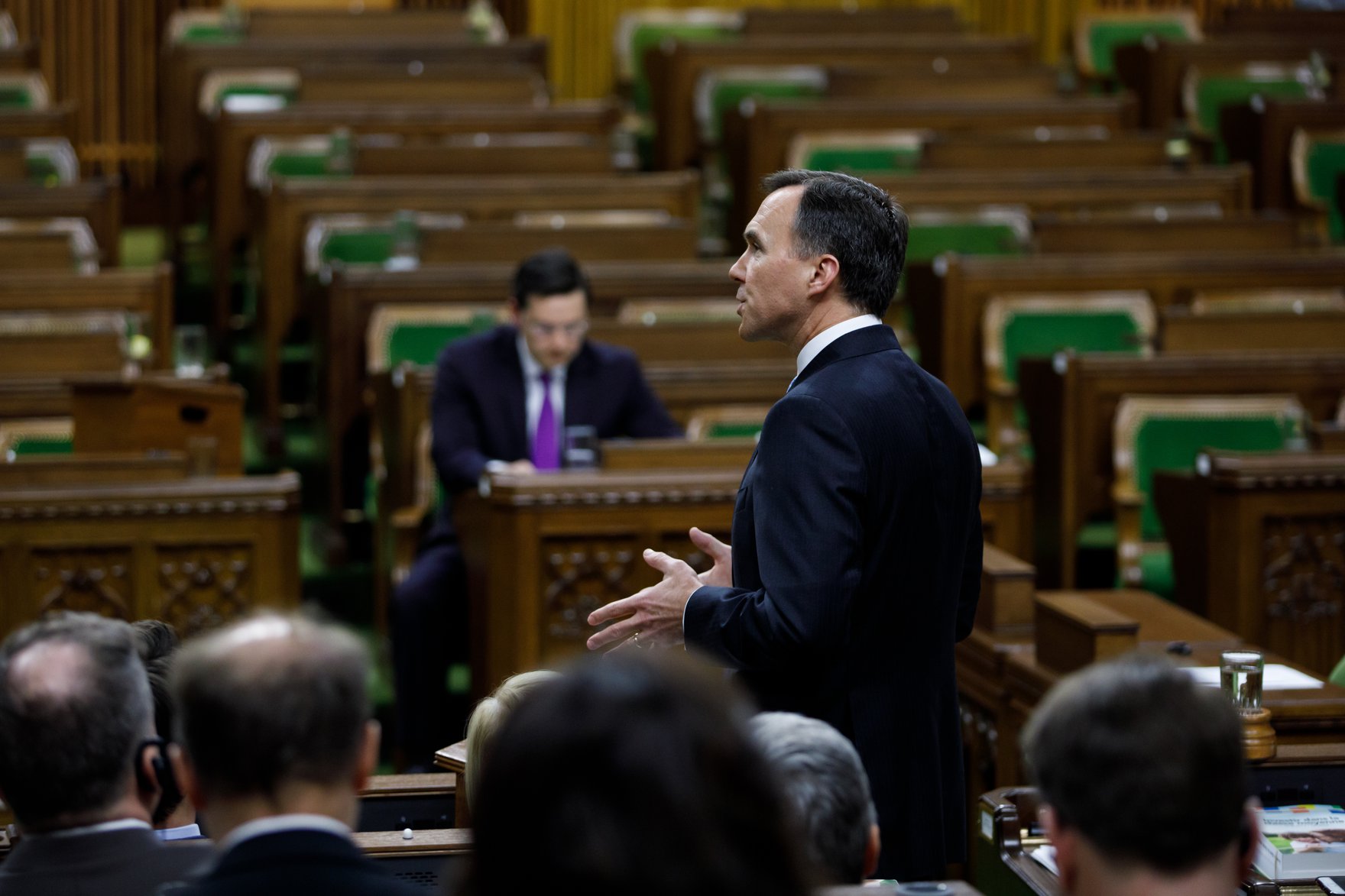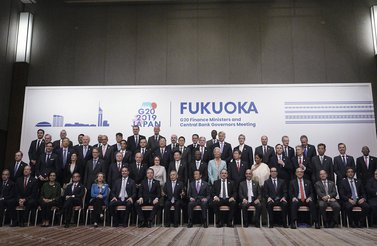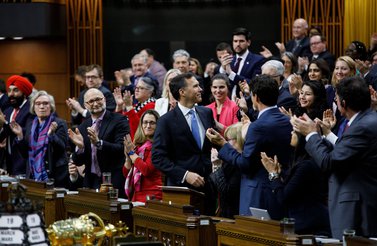Will 2020 be the year the world’s tax collectors get their revenge on the multinational corporations that have been eluding them for years?
It seems possible. Canada’s Finance Minister Bill Morneau’s official marching orders from Prime Minister Justin Trudeau are littered with commands related to tax policy, suggesting that the Group of Twenty’s (G20’s) desire to crack down on profit shifting and other legal tax dodges has not lost momentum.
The last few years have been bad ones for global cooperation. One of the biggest countries in the European Union voted to leave, US President Donald Trump introduced a new era of trade protectionism and Chinese President Xi Jinping made it clear that he is prepared to bully his way to “great power” status.
But as diplomatic and trade ties frayed, the world’s biggest economies got serious about taxing the companies that have used the forces of globalization and digitization to avoid taxes. Emblematic of the issue is Amazon, one of the world’s richest companies, which reportedly paid no corporate taxes in 2017 and 2018. G20 leaders in June 2019 backed the Organisation for Economic Co-operation and Development’s (OECD’s) effort to come up with a consensus on taxing global companies by the end of 2020.
Trudeau, whose party lost its parliamentary majority in October 2019, but retained its hold on power by winning the most seats in the House of Commons, appears set to keep up his end of the bargain. Among his orders for Morneau were directives to work with the OECD to “ensure that international digital corporations whose products are consumed in Canada collect and remit the same level of sales tax as Canadian digital corporations” and to “ensure that multinational tech giants pay appropriate corporate tax on the revenue that they generate within Canada.”
The latter command shows how the issue has evolved.
In 2015, when Trudeau was first elected, the main parties in the election promised that they wouldn’t apply federal sales tax to companies such as Netflix. In the interim, the public has grown increasingly wary of the biggest digital companies. Quebec and Saskatchewan now charge provincial sales taxes on the sales of Netflix and other digital companies. It’s inevitable that others will follow, including the federal government. In the October election, all the major political parties pledged to do so.
To be sure, charging sales taxes is the easiest part. Much harder will be deciding how to tax revenue.
Cooperation on taxing big technology companies and other multinationals has advanced because the Trump administration is keen on the project. But, as with his approach to trade, there is reason to think Trump equates “cooperation” with everyone else accepting his terms. When France broke ranks this year and implemented a tax on large technology companies, which are predominantly American, Trump threatened retaliatory tariffs on French imports. It’s unclear why the United States would stop at France. American trade associations have already complained to the White House that the taxes promoted by the Trudeau government, which mimic the French policy, would violate the new North American free-trade agreement.
Trudeau’s apparent desire to tax the biggest digital companies isn’t coupled with a coherent narrative about what he hopes to achieve with such a tax.
Jonathan Haskel and Stian Westlake note in their book, Capitalism without Capital: The Rise of the Intangible Economy, that competitive tax policy represents a viable way for small, open economies (including Canada) to accelerate investment in their tech industries. Economist Roger Farmer argues that the shift to a digital economy would require an overhaul in tax policy. The value of investment in intangibles — such as intellectual property or renting space on cloud computers — is difficult to measure, and it is undoubtedly generating profits and wealth for its owners. Therefore, Farmer thinks governments should focus on taxing income at the same rate, which would allow them to raise revenue from the tech sector’s wealth by taking the revenue of owners and highly paid executives.
Canada’s government talks about none of this. Trudeau’s initial reluctance to tax technology giants leaves the impression that he’s merely responding to public opinion, not constructing a cohesive tax policy.
There’s a “tax-the-rich” theme to Trudeau’s orders to his finance minister. He also wants Morneau to review the tax incentives to “ensure that wealthy Canadians do not benefit from tax breaks”; update “anti-avoidance rules to stop large multinational companies from being able to shop for lower tax rates by constructing complex schemes between countries”; close “corporate tax loopholes that allow companies to excessively deduct debt to artificially reduce the tax that they pay”; and keep a campaign promise by applying a 10 percent tax on “luxury” boats, cars and personal aircraft that sell for more than $100,000.
Each of those measures could be justified on the basis of narrowing gaps between the richest and everyone else, and that might be the point, since Trudeau continually emphasizes his desire to improve the lot of the “middle class.” (He created the position of minister of middle class prosperity in his new Cabinet.)
But using tax policy to balance income inequality risks losing sight of the role taxes play in determining economic competitiveness. “Modernizing” anti-avoidance rules is a good idea if done in concert with other big economies; if Trudeau goes it alone, or goes too far, he could end up hurting investment. As the economy goes digital, growth will be driven by intangible assets such as intellectual property, which can be moved around easily. All things being equal, investment in the intangible economy will naturally flow to where it is taxed the least.
The same is true of talent. Trudeau might have learned this lesson the hard way. In his pre-election budget, he pledged to stop highly paid executives at well-established companies from using stock options to lower their income taxes.
Implementing the policy has proven difficult. Startups rely on stock options to attract workers because they tend to lack enough revenue to meet the salary demands of the people they need. The Canadian government assured such firms that they would be protected, but executives reacted angrily anyway. Morneau announced on December 19 that the change would not be made on January 1, 2020, as originally planned.
Governments may be on track to crack down on international tax dodgers, but the Canadian experience shows that it could be a bumpy road. They might try articulating precisely what they are trying to achieve — besides getting back at a handful of suddenly unpopular technology companies.





